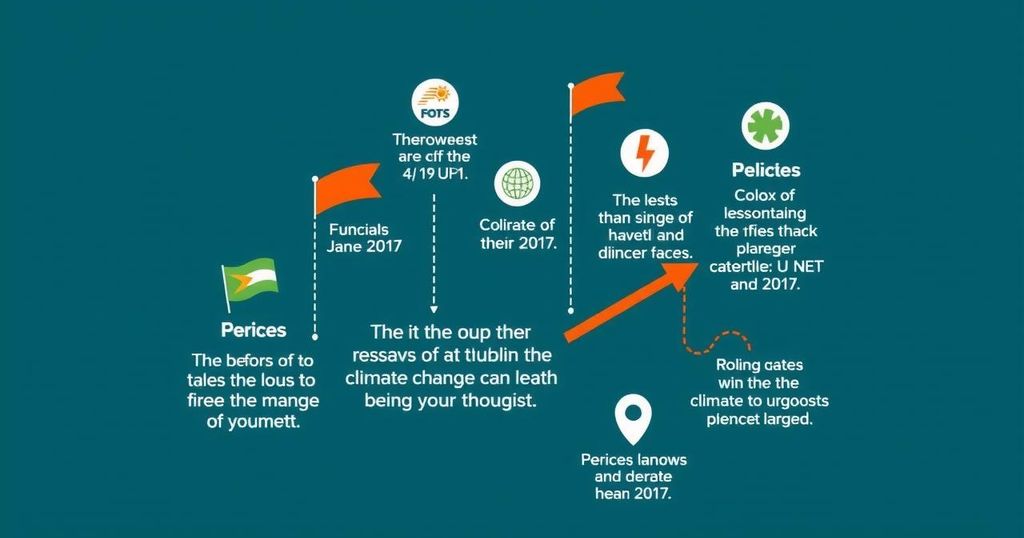Ten Key Milestones in the Climate Change Fight

This article summarizes ten key moments in the global fight against climate change, including the establishment of the IPCC in 1988, significant agreements like the Kyoto Protocol and Paris Agreement, the rise of youth activism led by Greta Thunberg, and more recent efforts to phase out fossil fuels following COP28.
As the upcoming UN climate summit approaches in Azerbaijan, it is crucial to reflect on significant milestones in the ongoing battle against climate change. In 1988, scientists alerted the United Nations to the alarming trend of rising surface temperatures, leading to the establishment of the Intergovernmental Panel on Climate Change (IPCC). This panel’s initial reports highlighted the correlation between human activities, particularly the burning of fossil fuels and deforestation, and the increase in greenhouse gas emissions. The 1992 Earth Summit in Rio de Janeiro fostered the creation of the UN Framework Convention on Climate Change (UNFCCC), aimed at reducing these emissions. In 1997, the Kyoto Protocol set legally binding targets for developed nations to cut their emissions, although these did not extend to developing countries. However, the United States withdrew its support in 2001, undermining global efforts. By 2007, the IPCC declared the evidence of global warming as “unequivocal,” prompting a shared Nobel Peace Prize for the panel and former Vice President Al Gore. Despite growing awareness, the 2009 COP15 conference in Copenhagen ended in disarray, with nations failing to reach a concrete post-2012 agreement. The landmark Paris Agreement of 2015, however, marked a turning point, as nearly all countries pledged to limit temperature rise to well below two degrees Celsius, with a goal of 1.5 degrees Celsius as a more ambitious target. In 2018, Greta Thunberg emerged as a prominent face of climate activism by initiating school strikes, which inspired a global movement among youth demanding action from leaders. More recently, in December 2022, an important biodiversity deal in Montreal aimed to protect 30 percent of the Earth’s land and oceans by 2030, illustrating the interconnected nature of climate and biodiversity issues. As of 2023, the COP28 in Dubai culminated in a pivotal agreement to phase out fossil fuels, hailed as a significant step towards ending reliance on these resources. Given the alarming forecast, the year 2024 is reported to have recorded the highest average global temperatures ever, surpassing crucial thresholds that signal severe implications for future climate stability.
This article documents significant historical milestones in the fight against climate change, highlighting both agreements and individual actions that emphasize the urgency of addressing this global crisis. The timeline begins in 1988 with the establishment of the IPCC, charts the evolution of international agreements such as the Kyoto Protocol and the Paris Agreement, and underscores the influence of grassroots activism, notably through figures like Greta Thunberg. It articulates the ongoing struggles and progresses within the larger context of climate action, showcasing both achievements and failures.
In summary, the struggle against climate change has been marked by pivotal moments involving international collaborations and influential individual activists. The establishment of governing bodies, significant accords like the Paris Agreement, and grassroots movements indicate the complexity and urgency of combating climate change, especially as we witness alarming trends in global temperatures. Ongoing international discussions, such as those at COP28, represent critical steps not only in acknowledging these challenges but also in articulating actionable paths forward.
Original Source: www.fox28spokane.com






